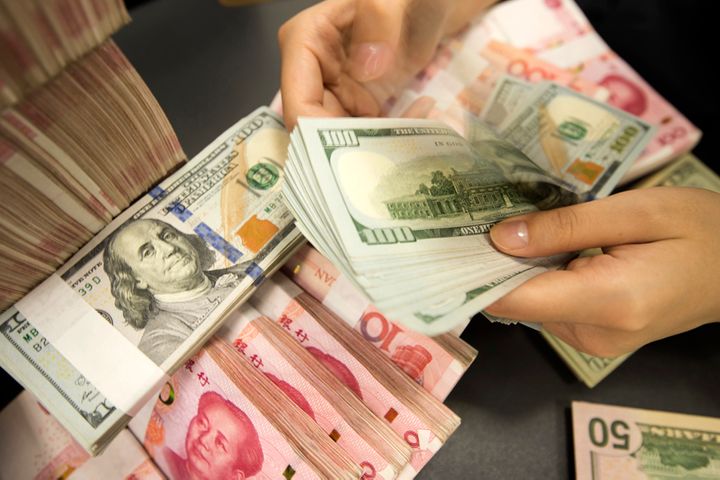 Yuan Is Seen at 6.93 to Dollar by Year End, Yicai Global Survey of Chief Economists Shows
Yuan Is Seen at 6.93 to Dollar by Year End, Yicai Global Survey of Chief Economists Shows(Yicai Global) Aug. 8 -- Leading Chinese economists interviewed by Yicai Global in a monthly survey expect the yuan to trade at 6.93 to the US dollar by the end of this year, indicating a weaker redback compared with their estimate of 6.86 last month. At the start of this week the yuan broke past 7 for the first time since 2008.
The consensus among the 10 chief economists interviewed was that the yuan will be stable and will adjust to its new rational and balanced level. Despite ongoing tensions in China-US trade that are likely to last some time, the exchange rate should continue to be stable so long as matters do not become extreme, according to Cheng Shi, chief economist at ICBC International Holdings.
All of the economists said recent lending rate cuts by central banks around the world -- caused by weakness in global economic growth, growing economic uncertainty due to global trade frictions and a continued downturn in commodity prices -- will allow the People's Bank of China more room to adjust monetary policy.
All of them expect the central bank's benchmark lending and deposit rates to remain unchanged this month and only two said the reserve requirement ratio may be cut before the end of the month.
The PBOC released an urgent statement yesterday evening squashing online rumors that it would cut lending rates by 0.25 percentage point from Aug. 10. It has reported the circulation of this fake news to the police.
The Yicai Chief Economist Confidence Index, a gauge of China's economic performance, stood at 49.78 this month, less than in July and below the critical level of 50 for a third consecutive month.
The second quarter saw the lowest rate of economic growth for 10 years, said Guan Qingyou, chief economist at Rushi Financial Research Institute. A looser monetary policy no longer has the ability to boost the real economy as it used to, he added.
China's economy will come under great pressure in the third quarter, especially exports as new US tariffs on Chinese goods come into effect, said Shen Jianguang, chief economist at JD Finance.
The real estate sector is also on a downward trajectory, with the experts predicting a 0.52 percentage point decline in development and investment growth to 10.38 percent in July from the previous month. Property investment may have fallen in July, while work on infrastructure is likely to see a rebound, said Wang Han, chief economist at Industrial Securities.